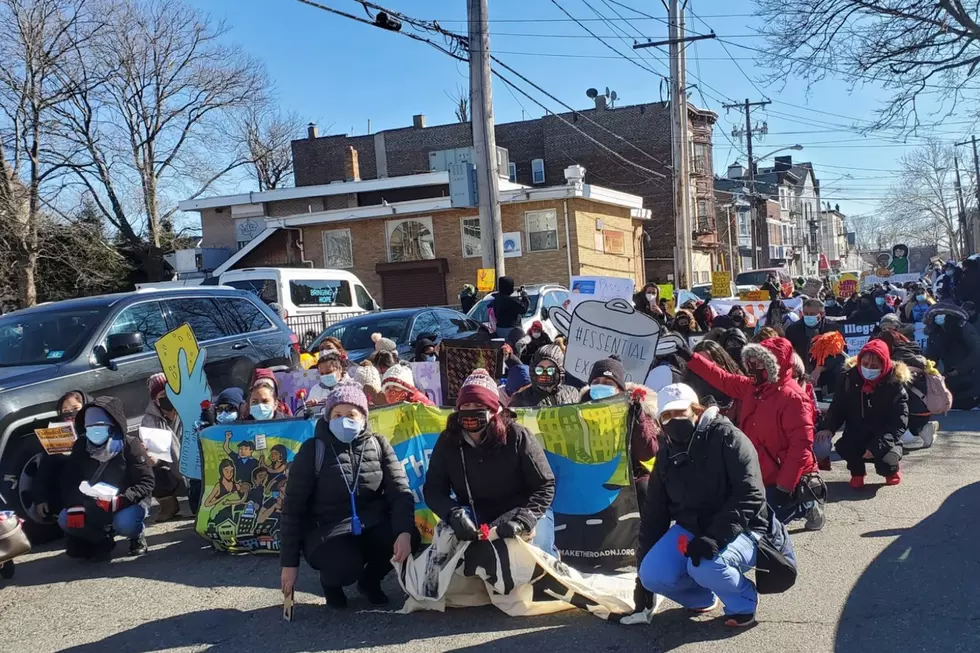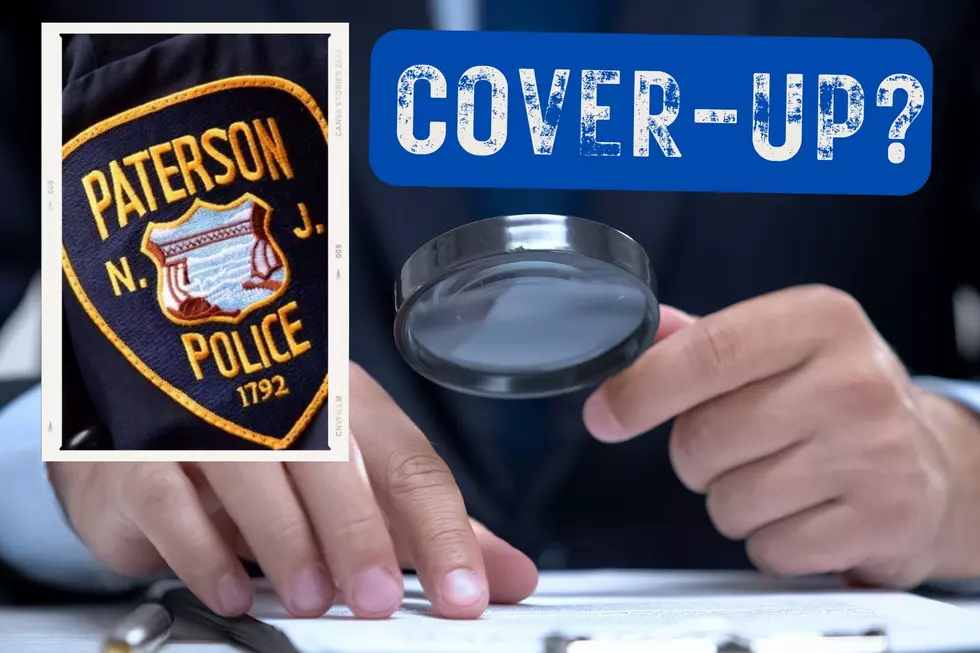
Hundreds Rally for COVID Aid to Taxpaying Unauthorized Immigrants
PASSAIC — More than 300 people turned out for a Sunday rally, according to its organizers, to support COVID-19 relief for taxpaying residents who are in the U.S. illegally.
Make the Road New Jersey led the effort in Passaic, also supported by the coalition, New Jersey Alliance for Immigrant Justice.
Immigrant women and domestic workers, many carrying handmade signs with slogans like "essential and excluded" sat or knelt in the street and took a moment of silence for being included in state and federal relief programs, a year since the pandemic hit the state, according to the organizations.
Despite paying more than $1 billion in federal taxes and $600 million in state and local taxes, thousands of New Jersey workers and their children have been shut out of any pandemic relief since spring because they are in this country illegally, according to advocacy groups.

As the state with the fourth highest percent of undocumented workers — 7.6% of its labor force — those workers have paid more than a billion dollars into the state’s unemployment fund over a decade but have never received any money back, Make the Road New Jersey’s Deyanira Aldana previously said during an online town hall in February.
In New Jersey, it's estimated that more than 604,000 people, including over 262,500 U.S. citizens, live with at least one undocumented family member, Aldana also said.
While the second federal stimulus payments passed in December did include some "mixed-status" households, in which U.S. citizens are married to immigrants here illegally, there are U.S. citizen children still left out from current aid.
About 52,000 New Jerseyans who are undocumented immigrants are married to U.S. citizens and roughly 128,000 U.S. citizen children have at least one undocumented parent, according to Make the Road NJ.
Under state legislation first proposed in May, the state would provide up to $1,000 in cash assistance to immigrants who use an Individual Taxpayer Identification Number to pay taxes. The system has been available by the IRS since the mid ‘90s.
Many of those immigrants paying taxes via ITIN are in the country illegally.
The pending bill – S2480/A4171 – would require the state Department of the Treasury to issue a one-time payment to ITIN filers, giving priority to families with children.
Payments would be $1,000 to taxpayers who listed at least one dependent child on their most recent tax return, $700 for married filers without a dependent child and $500 for other taxpayers, at a collective cost of $35 million to the state.
Advocacy groups and nonprofits have been calling for relief since spring to help New Jersey's most vulnerable workers, including unauthorized immigrants, who can't access government assistance during the pandemic.
A 2019 New Jersey Policy Perspective report found that immigrants, who make up 22% percent of the Garden State's population, run 47% of its Main Street businesses, and now find that they are underserved by or not eligible for certain relief programs.
The Robert Wood Johnson Foundation recently reported that on a national scale, 90% of children in immigrant families are U.S. citizens, but they represent more than 40% of all children who live in poverty across the country.
With previous reporting by Patrick Lavery
CHECK OUT: Where NJ's biggest winning lottery tickets were sold
More From WPG Talk Radio 95.5 FM










